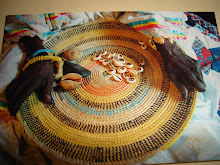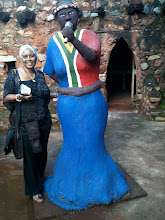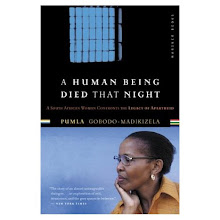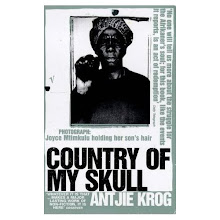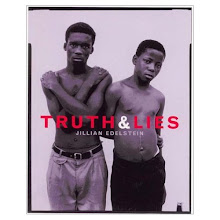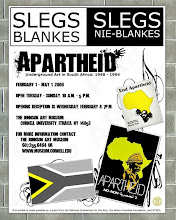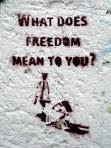Baba Credo Mutwa with Mbali, South Africa May 2006, Kuruman
In May of 2006 I got on a plane from Cape Town to Kimberly to meet a stranger who lived in Kuruman on the edge of the Kalahari desert. I did all the things I was told never to do-travel at night in a car with a strange man. I was met by a young man who gave me a warm blanket. I climbed into his van which had NO heating, he was to take me to meet High Sanusi, Vusamazulu Credo Mutwa(Awakener of the Zulus) also known affectionately as Baba Mutwa. It was 11pm at night and we were driving 2 hours into the bush . Even the driver said "It's dangerous to be driving at this time of night" I should have heard alarm bells and seen red flags but I did not. Instead I clutched my faithfull, cowskin medicine bag asked all my ancestors to stay with me and I sat back in my seat with no seat belt and trusted. This young man played Whitney Houston singing "and I will always love you " He told me it was Baba Mutwa's favorite song. I really wondered what I was doing, no fear, just one of those magic moments when you realize you have just pushed yourself to the edge of life ! It was freezing . "its not supposed to be freezing in Africa !" I said and he reminded me I had arrived in winter. I smiled in the dark, a dream was about to come true it was exhilirating. As I drove into the village I saw large 9 foot wire sculptures that looked like martians but held a flame to light the way fuelled by paraffin. White rondaavals which I later found out were ancestors houses. I was met by Virginia, Baba Mutwa's wife, dressed in her Sangoma clothes, her hair studded with brightly colored beads. She welcomed me into her house and told me I was to stay at the hotel in town. The next morning I was picked up by the driver still playing Whitney Houston mixed with popular music.
The great man Baba Mutwa was standing in his yard by a stunning sculpture of Mary holding Jesus on her lap that he had fashioned. Virgina guided me to him. He is partially blind from the diabetes and a looming presence in his own way. His head moved in a way that seemed to be picking up transmissions, it jerked from side to side. "you have come a long way why are you here?" were the first words that came from his mouth. "To find out more about my ancestors" I replied.
Your name is Mbali. Baba Mutwa spoke quietly in a beautiful lulling tone (you can hear his voice in various interviews with David Icke and he always addressed me as Maam or Mbali ) I looked at Virginia and she translated my name. In Zulu it means the flower. From that day on they called me Mbali and after a just a few times of hearing that name it began to sound very familiar. I was renamed in the country that I was born.
There are too many links to post but I do suggest you try to read a cross section of them to get a true picture of this extraodinary Healer, Shaman, Educator, Storyteller, Diviner and Elder and holder of the history of Africa . He is counsellor to many heads of state, kings and queens including the Dalai Llama and an amazing story teller. At 82 years old he is a beautiful, gentle spirit, fierce with passion, partially blind but still building sculptures with the help of orphaned youth which he interns. They are as high as 8-10 feet tall. A remarkable seer, diviner that knows about the creation of the earth, that talks as though he has lived in those times and in some way he probabaly has, and a man that has knowledge about caves that are millions of years old and rivers that have no bottoms. He knows Africa, he knows about the old indigenous ones, he knows where you have been even before you were born and where you are going! When you sit in his presence you are in the presence of the other world, in the presence of someone great and remarkable and astonishing and he transmits information that leaves you wide eyed, and stunned. I was humbled by his humbleness.
In the four days that I was with him I recieved a divination.He also gave me some of his divination stones. I received several hours of transmission. It was a magical time and a deep honor. Baba has been through many tragedies, and with all this he, like many black Africans I met continue to carry the strength and resiliance of a people who has seen and experienced much suffering.
He also carries his traditions and Medicine with great honor, the neckalces he wears and hold from his ancestors, are said to carry the oral history of his people and there are few who can read them. He understands the importance of passing on the medicine and traditions, but as many medicine men/women of his standing, (he has the highest in the Zulu tradion that a Shaman can have, he is ostracized by some of his people because they feel that the oral traditions should be kept secret.
In addition his book "Indaba my Children: should be given a place in schools for children to read the history of Africa written through story. It is his determination to keep the rich oral tradition of South Africa alive. He believes Africa is dying and he believes that HIV and Aids are a man made disease. He teaches with love and he does not suffer fools. He is the genuine article, steeped in his tradition as a Zulu, his father a direct descendant of King Shaka (this he says with a smile) He is a genius that takes us in to the heart of ancestral wisdom and he extends ubutnu with a gentle spirit and humility. If you are interested in tours to meet with him, post a comment and I will contact you



